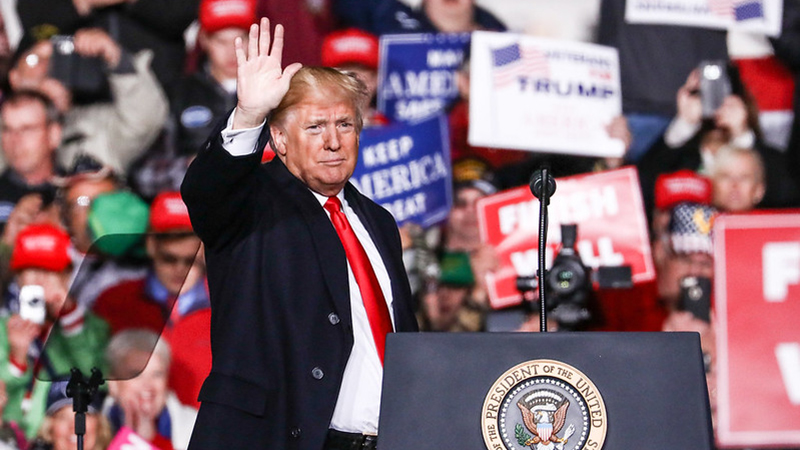Trump has pledged to impose a barrage of tariffs on goods coming into the US when he re-enters the White House in January, which could trigger a trade war that rouses global markets.
They are mostly targeted at China, with Trump proposing tariffs of at least 60% on Chinese imports, but he also intends to place a blanket levy of 10% on all other imported goods from around the world.
These measures could dampen already-struggling global growth and may be considered hostile by many countries, who in turn will retaliate with their own isolationist policies, according to Chris Metcalfe, CIO of IBOSS.
A trade war like this could send shockwaves through the global marketplace as countries rewire their supply chains and trading relationships.
And backing large economies such as China into a corner with crippling tariffs could force them to change the composition of the global marketplace as we know it, Metcalfe added.
He said: “China has various options available to it, and their strategy will be critical in shaping global market dynamics. I think it would be a mistake to expect the market reactions of the next couple of weeks to continue to play out for the rest of his presidency.
“As a Trump America becomes more isolationist and further dismantles the globalisation narrative, new relationships will be forged between countries and economic blocks, and it is too early to say how that will look.”
Will it backfire?
Lifting tariffs on all imported goods could be an easy source of income for Trump, who wants to lower taxes whilst simultaneously increasing spending.
But it could “counter the effect that Trump wants” if it leads to a resurgence in inflation, as Charlotte Daughtrey, equity investment specialist at Federated Hermes, expects.
“His proposed tariffs may be reflationary when the Federal Reserve is attempting to balance the need to bring down inflation without causing a stop to the resilient US economy,” she said. “This may impact the pace of rate cuts or perhaps push them back into a rate hiking cycle – something they are keen to avoid given the impact this had on markets back in the 1970s.”
The economic situation could worsen further if the US’s trading partners retaliate with their own counter-measures, which could reduce the nation’s GDP growth by between 1.3% to 1.8% over the next two years, according to the National Institute’s Global Macroeconometric Model.
Trump professed to be the most economically-adept candidate during the campaign, so he may want to tread carefully when implementing a policy that could ultimately backfire on the US economy.
Is it all a ploy?
Trump has already rattled global markets with his threat of sweeping tariffs, but it “may be a bargaining position” for him to use in trade negotiations, according to Garry White, chief investment commentator at Charles Stanley.
Even if Trump’s plans are less cunning, there is still a chance he may water down these levvies if it appears likely they will backfire on the US economy, added Zehrid Osmani, head of global long term unconstrained equities at Martin Currie.
He said: “The point to assess on tariffs will be whether Trump follows through with implementing them. There is the potential for Trump to not walk the talk he has been carrying on tariffs during the campaign trail, if his advisers manage to highlight to him the negative consequences of blanket tariffs on economic growth, inflation, and consumption, as well as the risk of a more hawkish stance by the Fed in that instance.”
Whatever the outcome, Henderson International Income trust manager Ben Lofthouse reminded investors that Trump’s tariff plans are still on the drawing board. They may well change over the coming months, so making a snap judgement in the immediate aftermath of his re-election may be ill-timed.
Lofthouse said: “It is hard to say what the impact on global markets and inflation will be yet as many of the potential tariff increases are considered by many to be negotiation positions to extract better terms of trade, so may not come to pass, but this will not be known for some time.”










